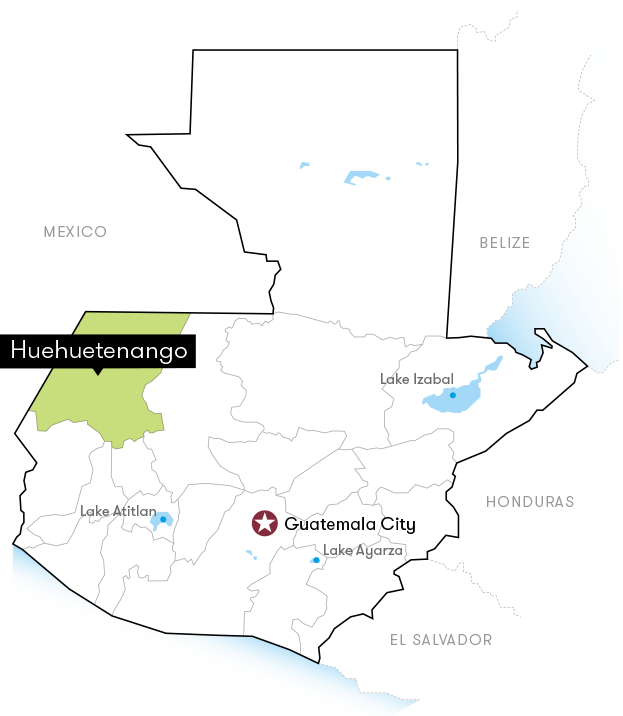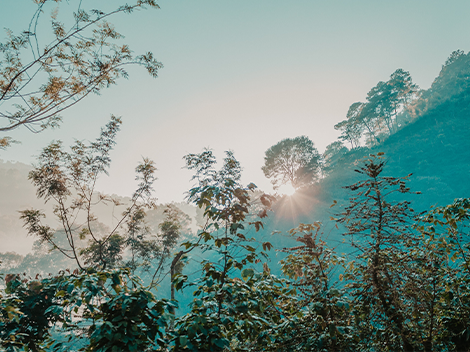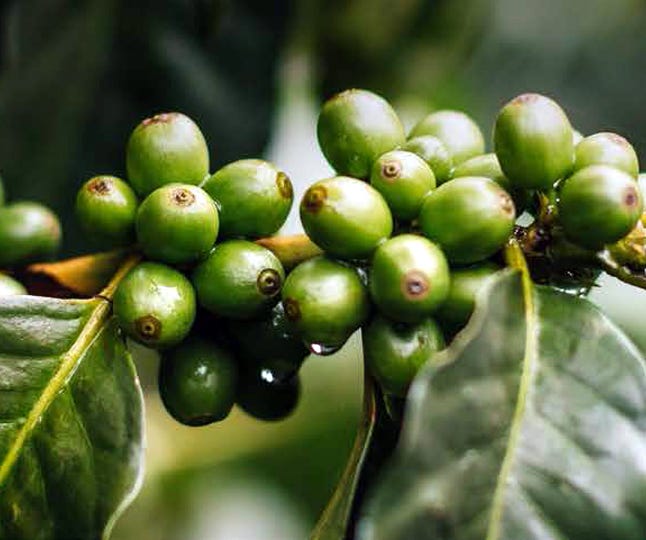Guatemala Washed SHB Hilario Jimenez (2021)
| Bag Weight | 69 KG BAG |
|---|---|
| Harvest Season | 2020/21 |
| Status | Spot |
| Lot Number | P8001412-2 |
About This Coffee


The Region
Río Ocho Grande (Big Eight River) is named because of a river that flows in the middle of the town. The community is part of the Todos Santos Cuchumatán region, notable because the people have conserved their traditional dress; some of the most colorful and bright in Guatemala. The men typically dress in short red pants with vertical white stripes, a white shirt with embroidered, patterned sleeves; a collar in red, purple and white and and a red or brown belt. Women wear a long blue skirt with white stripes, a red blouse with embroidered patterns in blue, purple, yellow and blue and a red belt. The town in which Hilario lives is actually too high to cultivate coffee so unusually, Hilario and his family have to move down the mountain to reach their farm.
The Process
At the farm they pick coffee cherries by hand, selecting the best ones. They do the floating process to remove the “banos", or over ripe floaters. Only the highest quality cherries are depulped for this lot. The coffee is fermented with water for about 18 to 24 hours. Once the coffee is reached full fermentation, the coffee is washed and then sent to drying. Then the beans are extended on the floor of the patios and dried in the sun until the optimum moisture content is reached.


History of Guatemalan Coffee
Although coffee was brought over from the Caribbean in the mid-18th century by Jesuit priests, it was used primarily as an ornamental plant and garden crop for 100 years in Guatemala. Coffee wasn’t widely traded, however, until commercial production began in the 1850s. The volcanic soil and various micro-climates proved ideal for growing coffee in Guatemala. Coffee, within a generation, became the country’s most important crop. In 1860, Guatemala exported 140,000 pounds of coffee, and just 25 years later, the country was exporting over 40 million pounds. Large numbers of coffee farmers were German immigrants responsible for many inventions and innovations related to coffee milling. Most of Guatemala’s coffee was exported to Germany until the First World War, when exports shifted to the United States.
- Subregion Caserío Río Ocho grande, Todos Santos Cuchumatán, Huehuetenango
- Farm Name Finca La Ladera - Hilario Lorenzo Jimenez
- Producer Type Single Estate
- Processing Washed
- Bag Types Grain Pro / Ecotact
- Plant Species Arabica
- Variety Bourbon, Caturra
- Screen Size 15 Up
- On Sale Yes
- Top Lot No
- Price Per Kg €6.00
- Status Spot
- Coffee Grade GTM CA WA SHB FANCY
- CTRM Contract Number P8001412-2
- Origin Guatemala
- Warehouse Vollers Hamburg





